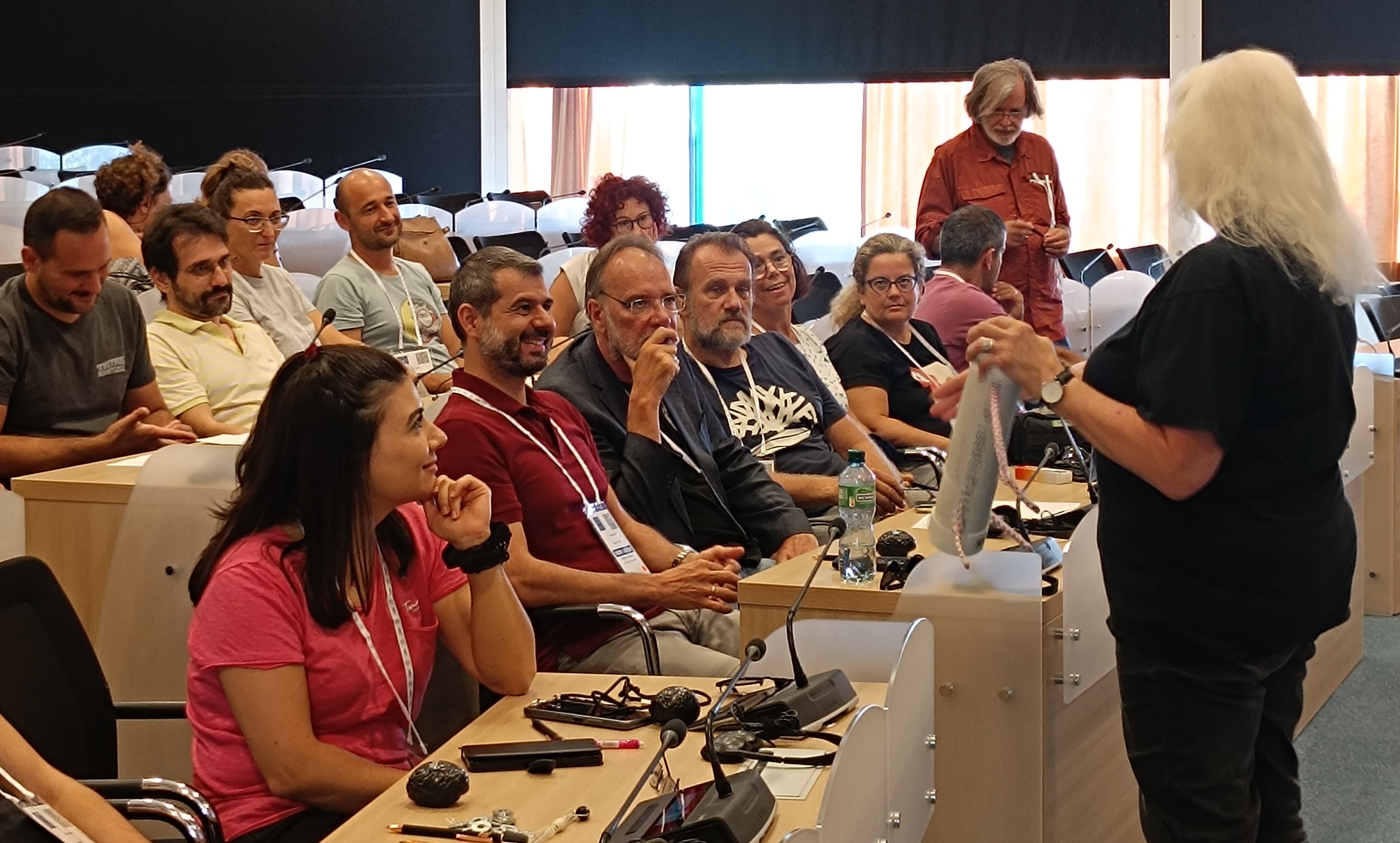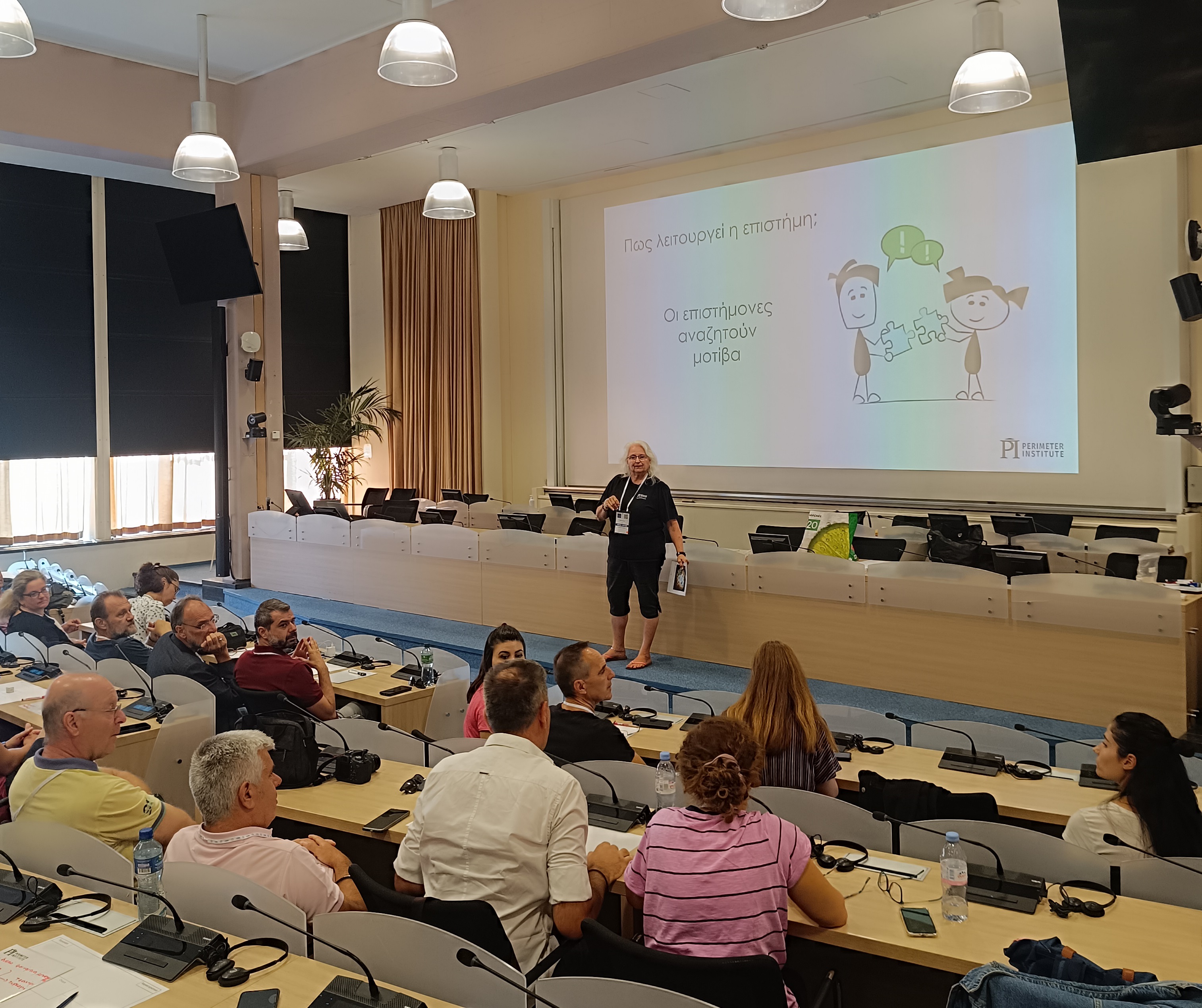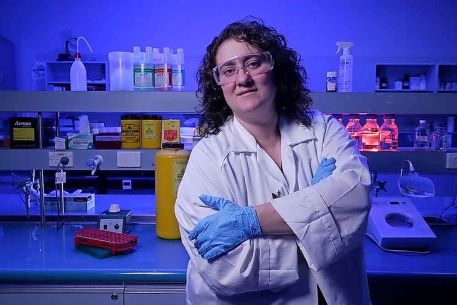This article series is a part of a larger initiative by CERN & Society Foundation to inspire young girls and women in STEM careers and help aspiring scientists push existing boundaries. Our Women in STEM campaign aims to reduce the gap between dreaming and achieving fulfilling careers in science.

“In high school, I was the only girl in a class of 27 boys studying to become an electronic engineer. I am not aware of any female role models which suggests they aren’t highlighted enough. We are constantly exposed to models, actresses, and influencers who are primarily known for their appearance, but we know very little about women scientists.” – Maria
My name is Maria Fountoulaki from Athens, Greece. I am 44 years old and have been working as a computer science teacher for the past 20 years. I have spent my time teaching at primary, secondary, and post-secondary levels in Greece and Germany, including the European School of Frankfurt. I hold a bachelor’s degree in Automation Engineering and a master’s degree in digital systems with a focus on Technology Education and E-learning. Over the years, I have actively participated in various projects and initiatives aimed at integrating technology into the classroom. engineering and electronics.

My passion for science began as a fascination with engineering when I was very young, around 5 or 6 years old. It all started when I decided to repair my Barbie’s scooter. I remember feeling extremely proud after I managed to fix it by putting all the gears and screws back in place. I even found a tiny screwdriver to help with the task and holding it in my hand made me feel empowered. This small but meaningful experience sparked my curiosity for understanding how things work and engineering in general.
This dream did not come without its challenges. Most of them were indirectly related to gender. In high school, I was the only girl in a class of 27 boys studying to become an electronic engineer. Later, during my Bachelor’s in Automation Engineering, I often felt that my male peers were doing better or grasped certain concepts more easily. However, this was mostly because they either had someone in their family or social circle with a background in the field or they were already working in a related area.
To overcome this, I focused on building my own support network, asking questions, and putting in extra effort to bridge the gap.
I realized that persistence and a willingness to learn were more important than any preconceived notions about gender.

I’m not aware of many female role models —which suggests that they aren’t highlighted enough. We are constantly exposed to models, actresses, and influencers who are primarily known for their appearance, but we know very little about women scientists. Female role models in science should be more visible and celebrated so that young girls can see the vast possibilities available to them beyond traditional roles.
One female scientist who inspires me is Professor Vasso Apostolopoulos, a Greek-Australian biomedical researcher and immunologist. She is a leading figure in cancer research, particularly known for her groundbreaking work in developing cancer vaccines and advancing immunotherapy. Her contributions have been instrumental in the fight against cancer, and she is highly respected in the scientific community for her innovative approaches and dedication to science.
Being here at CERN has given me a profound appreciation for the groundbreaking work being done and the immense knowledge and expertise of the scientists working here. I am in awe of their dedication and how far ahead they are in their respective fields. I am particularly impressed by how open they are to sharing their knowledge and work. Taking part in the CERN National Teacher programme has made me feel privileged to learn from scientists working here and gain a deeper understanding of theoretical physics. It has also reinforced my belief in the power of collaboration and knowledge-sharing in advancing science.
Looking forward, I hope to continue evolving both as a teacher and a scientist. I aspire to participate in research projects related to my field and to continuously learn and grow. More importantly, I want to empower my students to embrace the new era that lies ahead, helping them understand the potential of technology and science and encouraging them to pursue their passions fearlessly.
One thing I would tell young girls and students is that there isn't just one path to achieving their goals.
If one way doesn’t work, they should try another, and then another, until they reach where they want to be. Being a scientist is not defined by gender. You might find yourself in environments where men are the majority, but that does not limit you. You define who you are, set your own terms, and play your own game. Moreover, you don’t have to be just one thing—a scientist, a career woman, or a mother—you can be all of these at once.
Making a difference comes from doing what you love, as that passion will inspire others. So, be bold, be persistent, and never let anyone tell you what you can or cannot do.